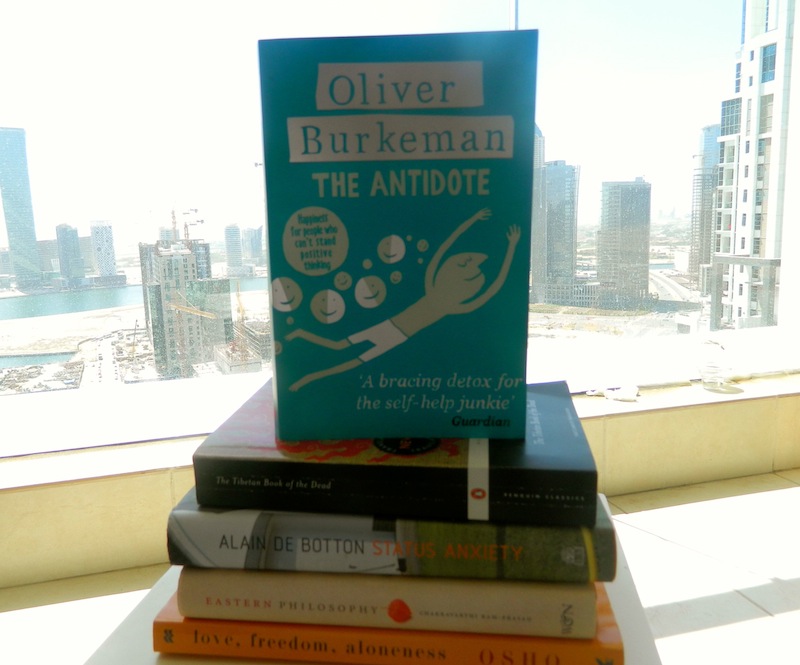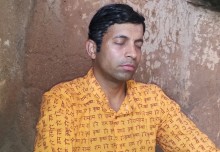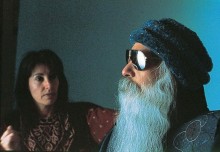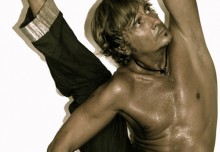The best-selling author talks about cringeworthy self-help exercises, what makes him happy and what he really thinks of Eckhart Tolle
*Where’s home for you?
New York City. I live in Brooklyn, which is home to a ridiculous number of British writers, it seems. It’s very easy to find Marmite and Branston pickle here.
*What did you think of the Emirates Literature Festival?
I had a wonderful time. Dubai blows the mind of the first-time visitor. It was thrilling to have conversations about the ideas I’m most interested in with such an enormously wide range of people.
What was your most memorable moment there?
Watching a poetry performance in the desert at night has to rank pretty highly, and Lemn Sissay’s readings – they’re too active and expressive to call them “readings”, really – were a joy. Signing books next to Francesca Simon was also very memorable and funny: I was flattered by how many people wanted a copy of my book, but you haven’t seen a real queue until you’ve seen a queue of kids who want their Horrid Henry books signing.
*How long did it take you to write your new book The Antidote?
From the moment I signed a contract to the moment I delivered a manuscript, it was about two-and-a-half years, but one year of that was deeply intense bookwork. The other period I combined reporting for the book with regular journalism.
*In The Antidote you review several self-help exercises – which was the most cringeworthy?
Without any question whatsoever, the subway exercise where I made myself speak out loud the names of each station on the London Underground for several stops. The idea is to bring your fears about the situation into contact with the reality, which is, of course, that a couple of people look at you like you’re weird, and then go back to their newspapers, and that’s all that happens. So the end result is one of great calm and confidence. But at the beginning? Utterly cringeworthy.
*On a scale of 1 to 10, how happy are you overall?
I find this kind of question very hard to answer. 7 or 8 feel like the right answer, but I’m not even sure what that means! I very rarely get truly, utterly miserable, a 1 or 2. That’s pure luck of the draw, brain-chemistry-wise, and I’m very grateful for it.
*What activities add a little bliss to your life?
Drinking good beer. Eating cheese. Conversations with old friends. Ideally, all three at the same time. And spending time in wild, remote countryside whenever I can. I grew up near the North York Moors, and hiking on a windy moor top is a pretty good definition of bliss for me.
*What things make you feel angry/upset?
The most frequent category of small annoyance, I think, is discourtesy in public places – drivers not thinking about pedestrians, people expecting *you* to navigate around *them* because they’re absorbed in their phone screens, instead of looking up. I’m not saying these make me utterly furious, and they pass pretty quickly, but they definitely have more resonance for me than the action itself would suggest. It’s something about what it says about people’s attitudes to community and the give-and-take of living near each other in close quarters.
*You’ve met Eckhart Tolle. What’s he like as a person? And what do you think of his The Power of Now philosophy?
As a person he exudes this very, very strange sense of absolute stillness that is disorienting at first, but quickly becomes wonderful. He isn’t anxious to fill the silences in conversation; he doesn’t mind waiting for several seconds or longer before he answers a question. And he was very generous with his time. (I guess if there is only Now, then you don’t need to worry so much about getting to the next thing on your schedule!) There are some minor aspects of his philosophy that strike me as too ‘New Agey’ for me, or perhaps pseudoscientific, but the vast majority of it is a wonderfully valuable exercise in pointing to ‘who you really are’. It’s not the content of his words; it’s the effect they have on you. It’s well worth experiencing, and I’d encourage people to suspend any scepticism long enough to try.
*Have you ever visited any spiritual centres in India?
No. I’m a bit embarrassed to say I haven’t been to India. That was going to be another aspect of The Antidote but I simply ran out of time and space!
*Was Osho a genuine guru in your opinion?
I’ve no idea at all, I’m afraid. But I like something Alan Watts used to say about gurus and genuineness in general. He had this concept of the “genuine fake”. He was a charlatan, he freely admitted. But then in some rather deep spiritual sense, all of us are ‘faking it’ by thinking of ourselves as isolated, separate, individual egos. So even a ‘fake’ guru, if that idea means anything, can be of great merit in pointing towards something valuable. And by contrast, a ‘genuine’ one could still be exploitative if their own personality problems get in the way.
*Why do you think so many people in the West look to the East for spiritual fulfilment or existential answers?
I think it’s often easier for a big or challenging idea to enter our minds wearing ‘exotic’ clothes; in the same way that it can be easier to hear advice from some author or speaker you don’t know than from your spouse, sibling or best friend! Beyond that, I do think some of the psychological insights of Buddhism have been more vindicated by modern psychology than those of some other traditions.
*What are your passions besides writing?
I am never happier than when hiking somewhere in upstate New York with my girlfriend; I love the community choir to which I belong here in Brooklyn; and playing the piano so long as nobody else is there to hear how terrible I am.
*What projects are you working on at the moment?
I’m working on a new version of my Guardian column, and trying to put together a new book proposal. It’s early days, but I’m especially interested in the topic of attention. And how what you end up paying attention to essentially constitutes your whole life.
*What’s your advice to budding self-help authors?
I think the category of ‘self-help author’ is slowly crumbling as a distinct category, and this is an excellent thing. Every book and every person has some kind of useful advice to pass on to others; often, it’s best done indirectly, by interviewing people you’re fascinated by, travelling to places you’re eager to go, and writing about the effect these had on you. That’s what I’m mainly aiming for in my books; I think the self-help tone of “Now here’s what to do” can be less useful.
*What are your plans for the rest of 2014?
Get started on another book. Hopefully go on another meditation retreat, maybe longer this time: two or three weeks? And get back to the UK once or twice to see my family, friends and the moors…
To order a copy of The Antidote: Happiness For People Who Can’t Stand Positive Thinking go to www.oliverburkeman.com




